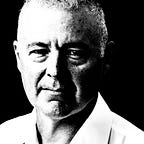How do we reconcile with cruel fate?
Frankie Kleiman, found today in the rubble of the fallen Surfside building near Miami, was my football teammate forty years ago. He was smart, resilient, and fast: a “do anything” player and likable guy who quickly earned a leader’s role in our motley crew. I was a mediocre offensive guard and linebacker, barely getting along on grit and minimal talent. We played well together in a league that would mark the lives of the young men who battled weekly on friendly fields.
In spite of my misplaced teenage swagger, I liked Frankie the first time we met. Who in their right mind wouldn’t? Frankie was charismatic, confident and capable. He seemed equally at ease leading the team on a touchdown drive as he did consoling a teammate after a bad play. At that immature point in my life I found it amazing that someone could be both cool, and firmly devoted to family and faith. His father, Saul, was a cornerstone of the devoted parent group that brought water, oranges, snacks and more to those unforgettable Saturday mornings. A successful local business owner, Saul was generous with his time, resources and smiles every season we played. Those were magical days, where the flow of our youth revolved around weekly practice, Saturday games, and the memories we forged on the field.
I lost touch with Frankie, and many other teammates, as we headed off to university, began our professional lives, and started families. Yet the experiences we lived on those fields — the pursuit of excellence on behalf of others; finding dignity in loss; the absolute importance of sportsmanship and grace and ethics — shaped who we would become.
Early this morning on a bike ride with my wife, escaping the summer Florida heat, I saw the news Frankie had been found in the Surfside rubble. Miles from where we rode our bikes, someone found Frankie, a colleague and teammate who never knew the impact he had on so many.
I stopped in a moment of loss. The group we rode with knew none of the victims. I felt empty and guilty, unable to come to terms with a tumult of loss and regret.
How does one respond to such tragedy? How does one grieve? More importantly, how does one help others grieve? What could we possibly tell Saul, devastated at the loss of his entire family? Any gesture in the face of such tragedy is a candle flickering against a cruel storm.
Many will lash out in understandable grief in the aftermath of this tragedy. Builders, inspectors and local officials will be the recipients of anger and desperate anguish. Such raw emotion is inevitable, yet offers no comfort. This tragedy is a cruel reminder that life and fate do not heed supplication. Anything and everything can be lost in an instant: untold tomorrows, cherished memories, the joy of family and the promise of the future.
We rode home in silence. Nothing could be said. I wondered what one could tell a father who lost both sons, grandchildren, and daughters-in-law in one cruel accident. Words fail me — I cannot fathom such loss.
As we rolled up to our home, my wife captured the only thing left to do.
“We have to honor them by living the best we can.”
Perhaps that is the legacy of those we lost. Live the life we have as if every day could be our last. A renewed focus on joy and service, not in selfish pursuit, is a potent shield against capricious fate. A world where we live acknowledging we can pass at any moment might be a magical place.
May the memory of those lost give those who remain strength in the coming days. Rest in Peace, Frankie.
If you want to help the community, this page has links to various nonprofits helping survivors.
